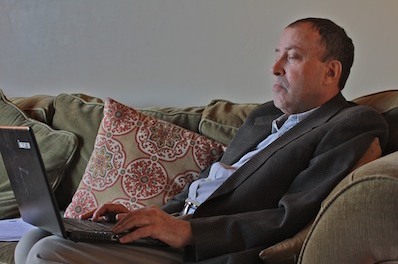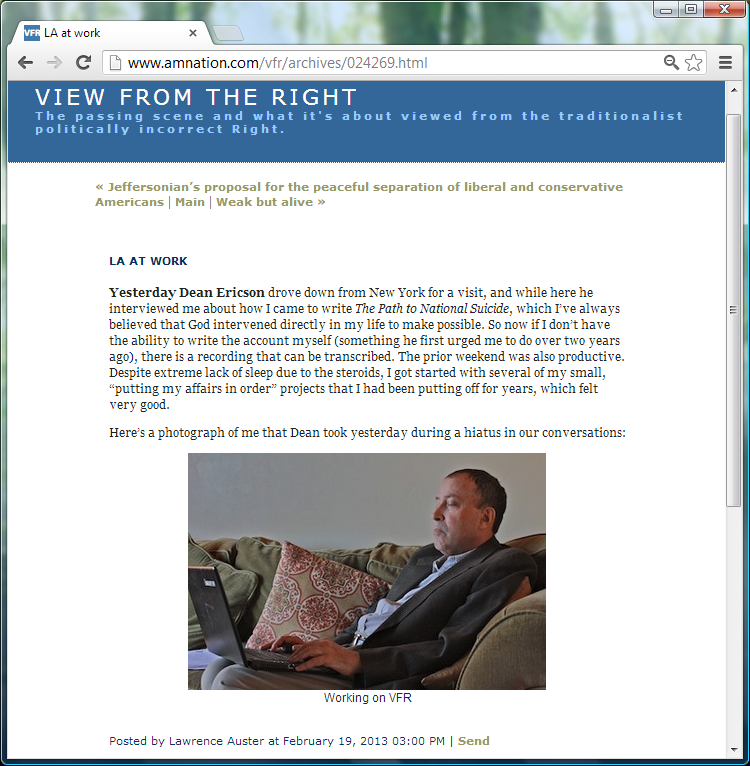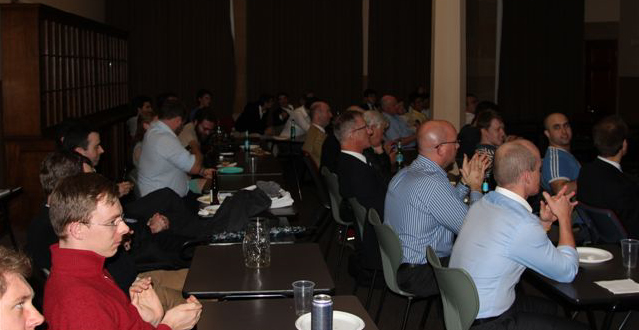 U.S. Traditionalist commentator and essayist Lawrence Auster, who is suffering the painful and debilitating consequences of metastasized cancer, has published a moving post on his weblog, View From the Right. Our readers may be familiar with Auster’s deteriorating health, which has been the subject of comment on his weblog and elsewhere in the orthosphere, and was also briefly noted by us during the international intercession prayer vigil organised in mid-January of this year. In his “What is the ultimate destiny of the human self” (20 February 2013) Lawrence Auster writes:
U.S. Traditionalist commentator and essayist Lawrence Auster, who is suffering the painful and debilitating consequences of metastasized cancer, has published a moving post on his weblog, View From the Right. Our readers may be familiar with Auster’s deteriorating health, which has been the subject of comment on his weblog and elsewhere in the orthosphere, and was also briefly noted by us during the international intercession prayer vigil organised in mid-January of this year. In his “What is the ultimate destiny of the human self” (20 February 2013) Lawrence Auster writes:
As I approach, however closely or distantly, the end, I feel that my self, along with its qualities and talents, is coming into some kind of completion and consummation. But that experience also sharpens the question: what happens to our self, our personality, after we die? Does it continue, or disappear? If it continues, in what realm and what form does it continue? The answers to these questions are utterly beyond us in our present state. Yet the very fact of our human existence compels us to ask them. My friend, who is a Catho[l]ic, says the puzzle can only be solved via the Catholic doctrine of the Resurrection of the Body. If it is only our soul, and not our body, along with the accompanying personality, that survives, that is not our whole, human self. Our self is a unique creation of God, and God having created it, he is not going to destroy it.
Just some preliminary thoughts.
And I am happy to report that I am still happy.
What follows are some reader comments that have been sent for publication to View from the Right. Because of Auster’s condition, comments are not being moderated at the same rate and efficiency as they once were, and this of course is to be understood.
Auster’s reflections however illustrate a man who is profoundly at peace as he contemplates his approaching voyage into that ‘undiscovered country’. His calmness emanates a certain power that one rarely encounters in the vicissitudes of day-to-day routine, with people consumed by mundane concerns and worries. Auster manifests the grace of a gentleman whose conscience is clean or who is ready to render his account before God. Compare this dignity and poise to the bitter nihilism of the Atheist, who, by denying transcendent authority, has no purpose beyond satisfying base desire through his sheer will and materialist, technocratic economism.
The tranquility with which Auster approaches the Earthly end reminds us of the importance of this transcendent element in civilised life, and how its denial leads to sterility and despair. The post-modernist religion of man and his momentary whim immediately degenerates into a politics of conceit and insatiable ego worship. Is it any wonder that the greatest crimes against humanity have been perpetrated in the name of ‘the people’, ‘rationalism’ and other anti-traditional, anti-Clerical and transcendent-denying ideologies? It is because spiritual man acknowledges the higher purpose, which is beyond him and rules over him, that he is capable of this dignity as he nears the end of his Earthly existence. In a piece published one day earlier, “Weak but alive” (19 February 2013) Auster writes thus:
I am lying in my bedroom in my friend’s house in suburban Main Line Pennslyvania, and outside the picture window is a small brown hill that looks like a California hill. I am extremely weak. I don’t know whether the weakness comes from the illness, or from the radiation treatment, which started yesterday, or from lack of sleep due to steroids that I have been taking to reduce the swelling in the brain. I hope and assume that I will get stronger than this, but if not, I won’t be able to do much of anything from now on, none of the projects I need to complete before the end.
While I am extremely weak, at the moment I am not miserable. There is a little core of happiness in my chest, of the pleasure of being alive. It’s not a lot, but it’s enough to make me feel that I am alive and not just suffering.
Weak yet not miserable. For the man who knows that he has done his utmost to live an honourable life and give honest witness to the Truth as he sees it, the deterioration of the body is no reason to lament. Indeed Lawrence Auster’s work has had a significant impact on the lives of many traditionalists, as well as others who have been attracted to the traditionalist cause. His “Letters from Readers” surely attest to this. Yet there is still work to be done:
It has been our hope that the material at View from the Right may one day be compiled into a volume of important and seminal articles, collated for the sake of posterity. This has been communicated to the author of the weblog on a few occasions by our members over the last couple of years, and we will take this opportunity to repeat it once more. Although this task would certainly be a time-consuming and considerable affair (and we appreciate that Lawrence Auster is in no position to undertake such a task at present) the transient nature of the internet means that we cannot solely rely on the availability of websites and take their existence for granted. Valuable weblogs and their content have disappeared in the past, without notice and overnight, either deleted by their administrators or removed for other, unclear reasons. A book compiled of Auster’s most definitive commentary would be an invaluable resource for future traditionalist critics of post-modernity. Although we appreciate the difficulty this may pose at present, perhaps our U.S. readers who are closer to the traditionalist community around View from the Right may raise this with Lawrence Auster: perhaps a collaborative effort involving trusted editors may bring such a project to fruition.
In the mean time, we certainly hope that his condition may reverse, as is not entirely inconceivable. If however this is not to be, we wish him a painless and peaceful exit from the turbulent worldly dramas he will leave behind. He will remain in our thoughts and prayers, and his legacy will not be forgotten or squandered.
– SydneyTrads
Addendum: as we prepare to publish the above editorial, it appears that Lawrence Auster’s condition has further deteriorated, although his will to live is clearly still present: “The road ahead” (21 February 2013).






Be the first to comment on "Lawrence Auster: Dignity and Poise"